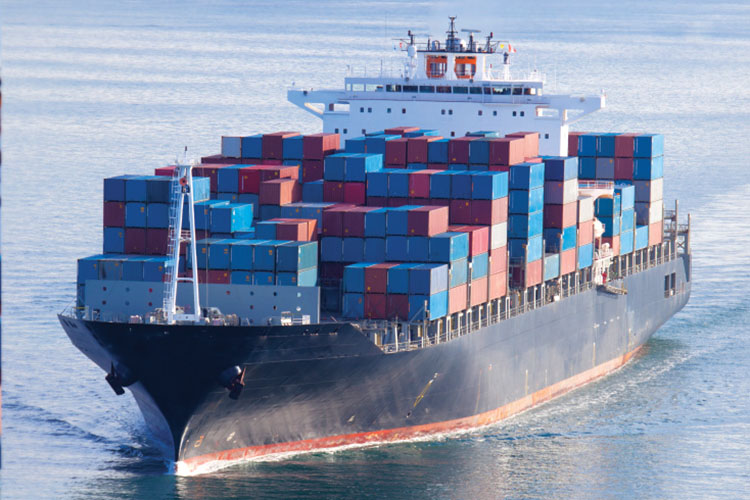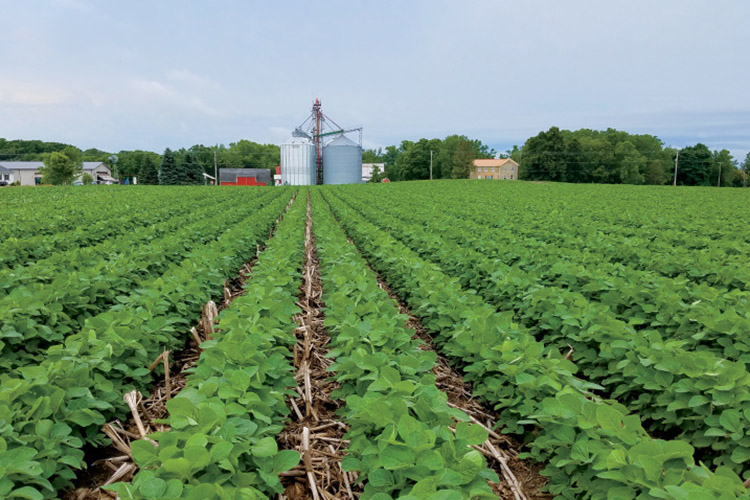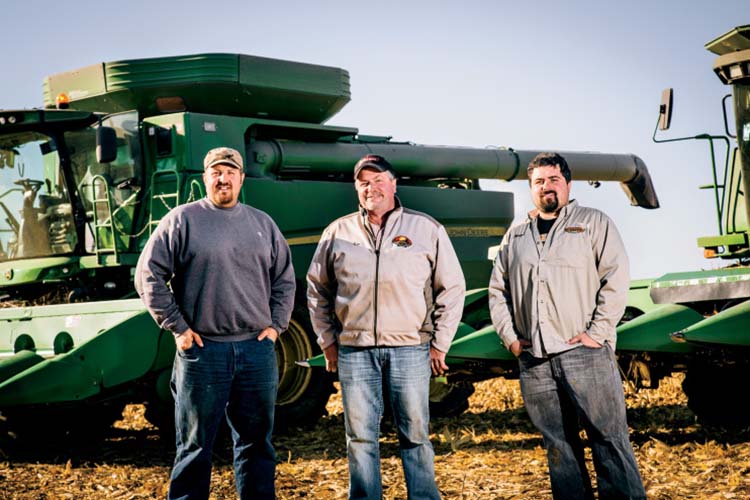Home > Wisconsin > Wisconsin Crops & Livestock > Export Market Buys Majority of Wisconsin’s Soybean Crop
Export Market Buys Majority of Wisconsin’s Soybean Crop
In partnership with: Wisconsin Department of Agriculture, Trade and Consumer Protection.

Wisconsin soybeans are racking up the air miles, making their way across the globe and onto the plates of international consumers.
On their family farm in southeast Wisconsin, Nancy Kavazanjian and her husband grow soybeans for the tofu market all the way in Kobe, Japan.
She has even traveled to meet her beans’ buyers.
“I just think it’s great that a farmer from Wisconsin can go to Japan and meet the people who are buying the soybeans that are made into tofu,” says Kavazanjian, co-owner of Hammer & Kavazanjian Farms in Beaver Dam and a director for the United Soybean Board. “The soybean market in Wisconsin is good for all farmers. It produces a high-protein animal feed for our dairy cows and quality cooking oil for human consumption. The identity-preserved soybean is an added value to export markets that can keep us sustainable economically, which is as important as ever these days.”
Across the United States, soy leads agricultural exports with a value of more than $28 billion in the 2017-2018 marketing year, the United Soybean Board reports. According to the Wisconsin Soybean Marketing Board, about 65 percent of the state’s annual soybean harvest is exported internationally. That means about two out of every three rows of soybeans growing in the Wisconsin countryside are exported to other countries.
Also see: Wisconsin’s Top 10 Agricultural Commodities

Wisconsin Meets Needs of International Buyers
Kavazanjian contracts and sells food-grade, identity-preserved soybeans through The DeLong Co., Inc. In this case, a premium soybean variety never comingles with other seeds or grains from the point of planting to customer delivery, preserving the characteristics that customers value.
The more than century-old family business, based in Clinton, consistently ranks as the top U.S. containerized shipper of agricultural products, including soybeans, corn, wheat, sorghum and feedstuffs.
The company annually contracts up to 25,000 acres with central and south-central Wisconsin family farmers like Kavazanjian to grow food-grade crops, says Austin DeLong, non-GMO export sales manager and fifth-generation participant in the family business. Those crops include soybeans that sell predominantly to Southeast Asia and Pacific Rim countries.
Also see: Soy What? Soybean Fun Facts
“This food-grade soybean export market not only provides The DeLong Co. with something unique and interesting, but it also provides a premium for the Wisconsin growers,” DeLong says. “We pay a premium to the grower to grow these types of beans because of their characteristics. They are non-GMO, have specific protein levels, seed sizes and various traits our international customers are looking for.”
The DeLong Co. trucks soybeans from Wisconsin to a cleaning facility in northern Illinois. Afterward, the crop moves into containers and heads west by U.S. railways and then by ocean from West Coast ports.
“It really gives a niche market to the local producers,” DeLong says. “It’s something that drives a premium product in a tough environment right now.”

Soy Exports Support Economy
The Custer family in Chippewa Falls projects 2 million bushels of international soybean sales in 2019, double that of 2018.
“Adding another international market brings new money into the economy and increases the overall value to not only our farm, but a lot of the farmers we are buying from as well,” says Darryl Custer. He owns a grain farm, trucking business and grain merchandising company with his father and brother under the names Custer Farms Inc., Chippewa Valley Grain Transport Inc. and Wheaton Grain Inc.
The soybeans that the Custers export travel by rail to West Coast ports, where they are loaded onto vessels bound for Southeast Asia. The sales support farm income, rural employment and various business sectors as the financial impact ripples across the economy.
“I feel really good about the fact that we are bringing new dollars into America and specifically bringing Southeast Asian dollars into Wisconsin,” says Ken Custer, Darryl’s father and a past president of the Wisconsin Soybean Association. “It bolsters our economy here, and we feel really good about being a part of that.”
See more: Wisconsin is America’s Dairyland



